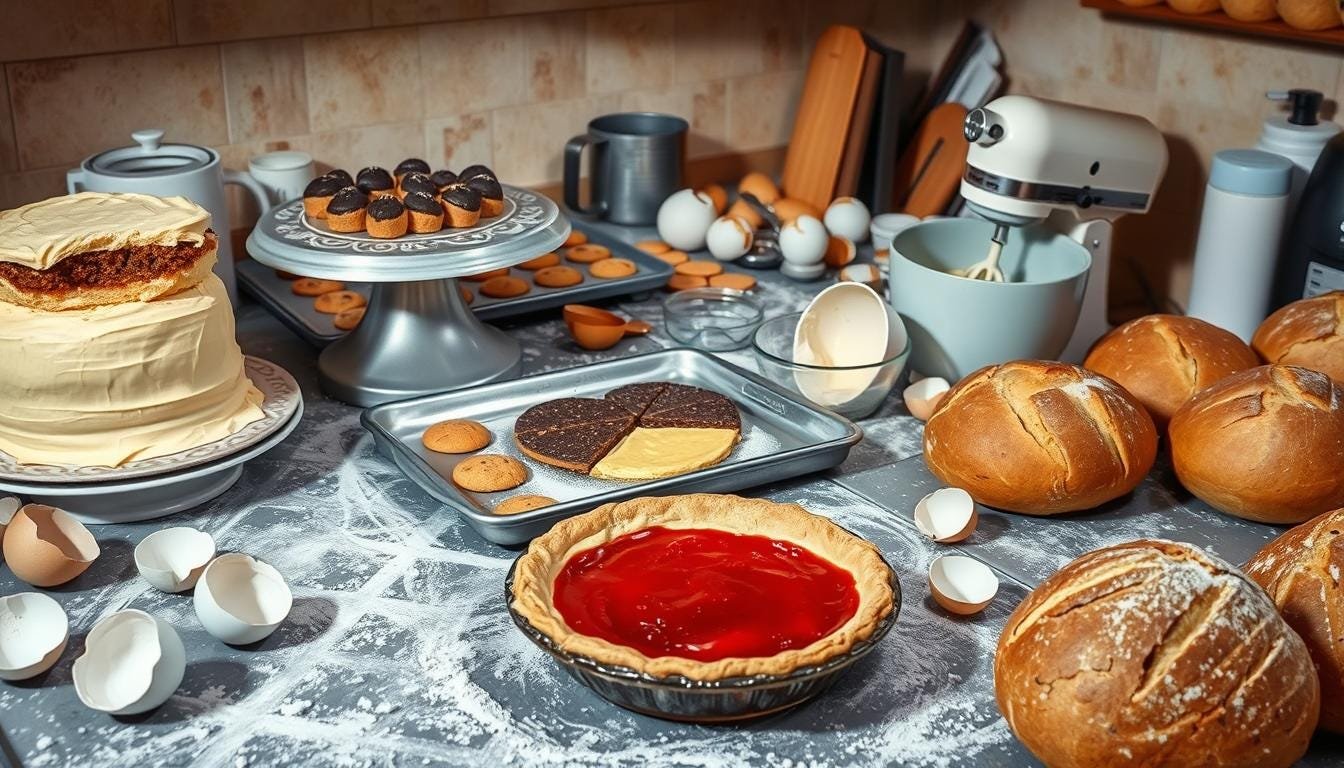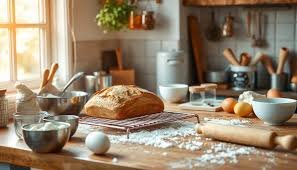Baking can be both a fun and rewarding activity, but it’s easy to make mistakes that can affect the final product. Whether you’re a beginner or an experienced baker, understanding common mistakes and knowing how to avoid them will help you achieve better results. Here’s a guide to some of the most frequent baking errors and tips for avoiding them.

1. Not Following the Recipe Precisely
One of the biggest mistakes many bakers make is not following the recipe exactly. Baking is a science, and small changes can drastically affect the outcome. Deviating from measurements, ingredient types, or temperatures can lead to poor results. Always read through the recipe thoroughly before you start. Gather all your ingredients and equipment first. This will ensure you don’t miss any critical steps and help you avoid unnecessary mistakes.
2. Incorrect Oven Temperature
Baking at the wrong temperature can ruin your baked goods. If your oven is too hot, your food might brown on the outside but remain raw inside. If it’s too cold, it could take longer to bake, resulting in uneven texture. Always preheat your oven before baking, and invest in an oven thermometer to ensure accurate temperature readings. It’s also a good idea to check the oven’s heat distribution by rotating pans or trays halfway through the baking process.
3. Overmixing the Batter
Overmixing your batter or dough can lead to dense, tough baked goods. This is particularly important for cakes, muffins, and cookies. When you mix too much, you incorporate too much air and overdevelop the gluten, which results in a chewy or hard texture instead of a light, fluffy one. Mix your ingredients until just combined, and stop as soon as there are no more streaks of flour or dry ingredients.
4. Using Cold Ingredients
Baking with cold ingredients can make a huge difference in the texture and consistency of your dough or batter. For example, using cold butter when making cookies or cakes can prevent the dough from spreading properly. Similarly, cold eggs or milk can cause the batter to seize up or separate. It’s best to bring all ingredients to room temperature before you begin baking. This allows them to mix more evenly, creating better results.
5. Not Measuring Ingredients Correctly
Accurate measurement of ingredients is essential for successful baking. If you use too much or too little of an ingredient, it can affect the structure, flavor, and texture of your baked goods. For dry ingredients like flour and sugar, always use a kitchen scale or proper measuring cups. When measuring flour, spoon it into the cup and level it off with a knife rather than scooping directly from the bag. This prevents packing, which can lead to excess flour.
6. Opening the Oven Door Too Often
Opening the oven door frequently during baking is a common mistake. Each time you open the door, heat escapes, which can cause uneven baking and affect the rise of your cake or cookies. Resist the urge to check on your baked goods too often, especially during the first half of baking. Instead, use the oven light to monitor progress and only open the door when necessary to check doneness.
7. Not Allowing Proper Cooling
Baking doesn’t stop once you pull your items out of the oven. Not allowing enough time for your baked goods to cool can result in soggy bottoms, crumbling cakes, or broken cookies. For cakes and breads, it’s important to let them rest in the pan for about 10 minutes before transferring them to a wire rack to cool completely. For cookies, allow them to cool on the baking sheet for a few minutes before moving them to a rack.
8. Using the Wrong Pan Size
Using the wrong pan size can drastically affect your baking results. If your pan is too small, the batter might overflow or bake unevenly. If the pan is too large, the batter could spread too thin and result in overbaking or drying out. Always double-check the size of your pans and adjust the baking time as needed if using a different size from the recipe’s recommendation.
9. Not Storing Baked Goods Properly
Proper storage of baked goods is essential to maintaining freshness and texture. Many bakers overlook how important it is to store cakes, cookies, and breads in airtight containers. If baked goods are left exposed to air, they can dry out quickly. Be sure to store them according to the recipe’s instructions—cakes typically require a cake dome or airtight container, while cookies should be stored in a tin or jar with a tight seal.
10. Not Using the Right Tools
Having the proper tools is crucial for successful baking. Investing in quality bakeware, such as non-stick pans, measuring cups, and a good hand mixer or stand mixer, can make a huge difference in your results. Using the wrong tools—like substituting a flimsy spatula for a sturdy one—can lead to a messy, frustrating experience. Always use the tools that the recipe suggests, or ensure that you have the correct alternatives.
Conclusion
Baking is a rewarding skill, but it’s easy to make mistakes along the way. By understanding common errors such as not measuring ingredients correctly, using incorrect oven temperatures, and overmixing your batter, you can ensure better results each time. Remember, precision, patience, and the right tools are key to achieving perfect baked goods. With these tips in mind, you’ll be well on your way to becoming a more confident baker.

